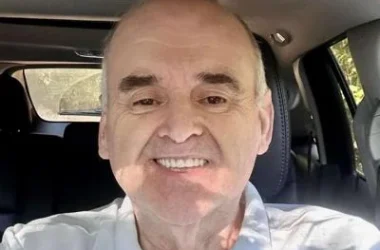By JAKE JARVIS
Charleston Gazette-Mail
CHARLESTON, W.Va. — The West Virginia Senate on Thursday approved a bill to lessen the authority of the Higher Education Policy Commission, a move that would give greater leeway to colleges’ own governing boards.

With only a brief overview of the bill’s implications, Senators voted 30-4 in favor of House Bill 2815. Only Democrats voted against it. The House of Delegates approved the bill last week on a 98-2 vote.
Meanwhile, the budget bill that delegates passed on Wednesday zeroed out the direct appropriations to individual colleges, instead giving all the money to the HEPC to decide how to allocate.
“I don’t want anyone to think that that would be some sort of rash decision,” said Matt Turner, HEPC’s executive vice chancellor for administration. “This model exists, it’s been done in other states and it’s been done in this state in the past. I don’t think it’s radical, it’s just not the way it’s been done in the past.”
Turner said HEPC officials didn’t know delegates would include that in their budget.
Senators approved several amendments to HB 2815 during its second reading on Wednesday. One such amendment, offered by Sen. Charles Trump, R-Morgan, requires the HEPC to develop a formula for allocating general revenue to all four- and two-year public colleges.
After looking at how many state dollars go to schools per student, per credit hour and by other “relevant measures,” the HEPC will need to deliver a report to the Joint Committee on Government and Finance and the Legislative Oversight Commission on Education Accountability by the beginning of next year.
Aims McGuinness, a senior associate with the National Center for Higher Education Management Systems, has studied and advised states on restructuring their systems of higher education for 40 years. In particular, he has looked at how large colleges interact with smaller colleges. In the absence of a strong statewide coordination to ensure all areas of the state have access to get a college degree, he said large institutions often gobble up state resources and can cripple smaller institutions.
“You really do need to understand differentiation. What will be important for WVU and Marshall is very different from what will be important for sustaining four-year and professional opportunities in each one of these other areas of the state,” McGuinness said. “You need to constantly ask the question, ‘Can we organize and finance it in a way where you can do this in a way that’s much more efficient than it’s currently done?’ Because there’s no more money.”
One resolution under consideration in the Senate appears to do as much. House Concurrent Resolution 66, which delegates approved in late-March, is working its way through the Senate Rules Committee.
That resolution directs the Joint Committee on Government and Finance to study how the state can better support its colleges. But that study wouldn’t be completed until the first day of next year’s regular session.
“You have got to frame the study in terms of the needs of the student, the population and the regional economy for the state,” McGuinness said. “Nobody else is going to do that.”
Current law requires all of the state’s public colleges to complete an institutional compact, a statement of how the school plans to accomplish legislatively mandated policies, each year. The three exempted schools (WVU, Marshall and the WVSOM) are exempt entirely from completing such a compact but instead must adopt a master plan without any approval from the HEPC.
The other institutions will have to complete compacts bi-annually instead of annually.
HB 2815 also shakes up the structure of the HEPC. Currently, the Secretary of Education and the Arts, State Superintendent of Schools and chairwoman of the Council for Community and Technical College Education all sit on the commission. Then, the governor appoints seven more members.
If this bill should be enacted, the governor would get to choose any four state citizens to sit on the board. The governor then would have to choose who sits in the final three slots from a pool of candidates nominated by the colleges.
The bill would also prevent the HEPC from assessing fees to the state’s colleges. Commission staffers estimate that, in order to make up for the fees they assess of the colleges, the Legislature would need to allocate an additional $5.7 million to the commission.
That money goes on to fund several shared services that colleges across the state use, including the widely used Degree Works software, campus safety training, some diversity initiatives and to pay for legal services.
“If that is not offset, these services are going to leave,” Turner said. “We simply can’t do them without a funding stream. I strongly believe that the services we pay for with this assessment have a direct and visible impact to the institutions and the students.”
The fees also partially fund the Higher Education Grant Program, a need-based program that helps the neediest students in the state pay for college.
Of the approximately $40.5 million which funds the HEGP, about $1.6 million comes from the fees the commission assesses of colleges, according to Matt Turner, the commission’s executive vice chancellor for administration. Without any additional money going toward the HEGP, Turner said 700 less students could receive the grant next year.
“We absolutely cannot see a reduction in that Higher Education Grant Program,” Turner said. “That is more important now than ever.”
HB 2815 also would allow colleges to increase their tuitions by 10 percent in a single year or 21 percent over three years, with no HEPC oversight. Colleges currently need HEPC approval to increase tuition more than 5 percent in a single year. In the past 15 years, the average tuition at the state’s public colleges has more than doubled, a recent report from the West Virginia Center on Budget and Policy found.
The West Virginia Independent Colleges and Universities, an eight-member group of the state’s largest private colleges, opposes the bill. In a joint statement, the presidents of schools including the University of Charleston said the bill will result in disorganization if colleges are allowed to decide on their own which programs to offer and likened the move to giving colleges a “blank check.”
“Giving a ‘blank check’ to public colleges and universities to compete unfettered with each other and with private institutions which do not seek or receive direct state funding is detrimental for higher education,” the statement reads. “Giving them a ‘blank check’ to pursue their own independent agendas without regard for the needs of the state is detrimental for West Virginia.”
See more from the Charleston Gazette-Mail




